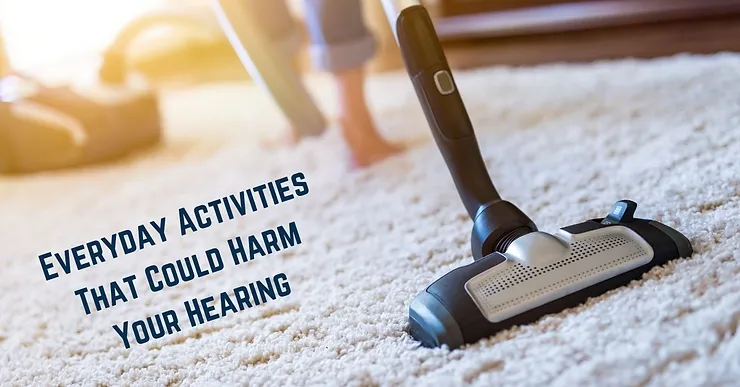
There are activities and environments we navigate on a daily basis that could be harmful to our hearing health. Absorbing loud noise can cause hearing loss which is a chronic medical condition that over 40 million people experience in the U.S. It is important to be aware of how loud is too loud and ways you can protect your hearing from the impact of loud noise.
Noise Induced Hearing Loss
There are various factors that contribute to the development of hearing loss including existing medical conditions, genetic history, aging, and exposure to loud noise. Noise induced hearing loss can result from one-time exposure or consistently absorbing noise at increased volumes which can damage the inner ear.
The inner ear is composed of the cochlea which is filled with thousands of tiny hair cells, fluid, and nerve pathways. The outer ear (the fleshy part of the ear that is most visible) takes in sound which travels through the ear canal and middle ear before arriving in the inner ear. This activates the cochlea and the movement of hair cells help translate soundwaves into electrical signals. These signals then travel through nerve pathways to the brain which processes the sound, allowing us to understand what we hear.
When hair cells are damaged, this process is disrupted and processing sound becomes challenging. Humans are born with all the hair cells we will ever have – thousands in each ear. Unlike other types of cells, these hair cells do not regenerate. This means that damage is irreversible and causes permanent hearing loss.
Daily Activities that Could Harm Hearing
Sound is measured in decibels (dB) which identifies the intensity of sound waves. Noise above 85 decibels is considered potentially dangerous. understand what this sounds like, here are a few helpful markers:
-
0dB: silence
-
30dB: whispering
-
60dB: normal conversation
-
80dB: city traffic, vacuum cleaner
-
100dB: motorcycle
-
120: airplane takeoff
-
130dB: concert
Proximity to the source of the sound and how long you are exposed to it determines the impact it has. There are numerous daily activities we engage in that produce levels of noise that exceed 85dB. Examples include:
-
Using household appliances: there are various appliances and power tools that make noise around and above 85dB. This includes:
-
hair dryer, blender: 80-90dB
-
lawn mower, vacuum: 90dB
-
hand drill: 100dB
-
Work environments: According to the Hearing Health Foundation, 30 million people in the U.S. are exposed to hazardous noise levels at work, making this a common way people can damage their hearing.
-
Commuting: travel is another daily activity that exposes us to risky levels of noise.
-
City traffic: 80-90dB
-
Airplane takeoff: 120dB
-
Settings/Activities: countless activities that you may enjoy such as attending concerts, sport arenas, gun ranges; are also potentially harmful to hearing.
-
Listening to music: The Hearing Health Foundation also estimates that 50% of people aged 12-35 years could be exposed to unsafe noise from personal listening devices.
Being aware of volume and taking the steps to protect your hearing can drastically reduce your risk of developing hearing loss.
Protecting Hearing Health
There are several ways you can protect your ears from the impact of loud noise. This includes:
-
Wear protective gear: different types of protective wear reduce the amount of sound your ears absorb. A few examples are ear plugs, earmuffs, and headphones.
-
Noise-cancellation headphones: headphones are a common way people listen to music, podcasts, audiobooks etc. Noise cancellation headphones are designed to reduce background noise so that you are not forced to increase the volume in loud environments. This allows you to listen at safe levels.
-
Take listening breaks: our ears need time to rest and recover from absorbing noise all day. Be sure to take listening breaks!
-
Reduce exposure: by turning down the volume on electronic devices, avoiding traffic and/or routes that are heavier with traffic, limit time in nosier environments etc.
-
Hearing test: taking a hearing test is a great way to measure your hearing ability and know if you are experiencing any impairment (and the degree). Early detection can profoundly improve your hearing and overall health!
If you are ready to take a hearing test or you want more information on custom hearing protection, contact us! We provide comprehensive hearing health services and we’re here to help.
